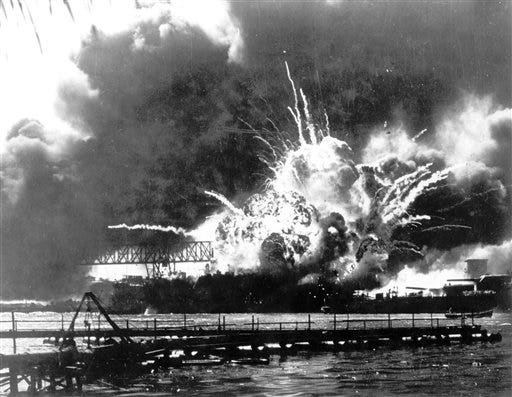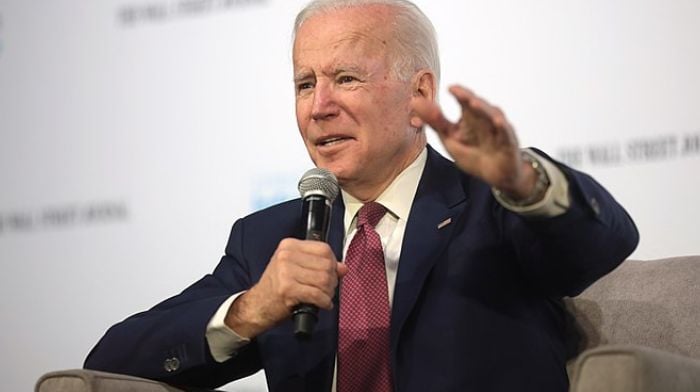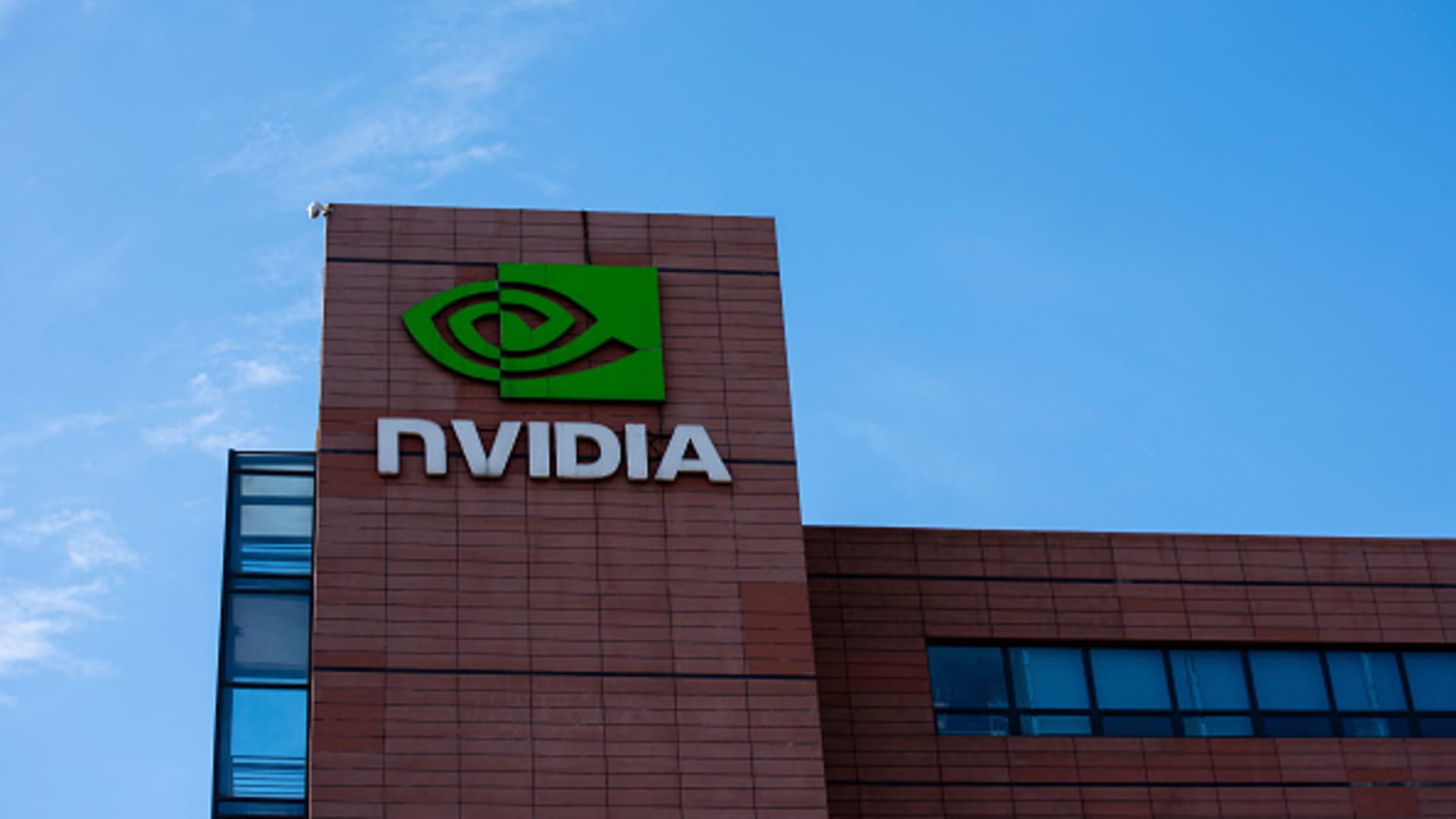Imperial Japan launched a devastating Sunday morning surprise attack on the U.S. Navy and other military assets at Pearl Harbor, rousing a “sleeping giant” and thrusting an enraged America into World War II, on this day in history, Dec. 7, 1941.
“For nearly two hours, Japanese firepower rained down upon American ships and servicemen,” reports the National World War II Museum.
The savage raid by aircraft carrier-borne warplanes sunk or damaged 21 U.S. warships — including the USS Arizona and USS Oklahoma — destroyed or damaged 347 aircraft, and killed 2,403 Americans.
“Yesterday, Dec. 7, 1941, a date which will live in infamy, the United States of America was suddenly and deliberately attacked by naval and air forces of the Empire of Japan,” President Franklin D. Roosevelt announced with determined indignation the following day, while asking Congress for a declaration of war.
“No matter how long it may take us to overcome this premeditated invasion, the American people in their righteous might will win through to absolute victory.”
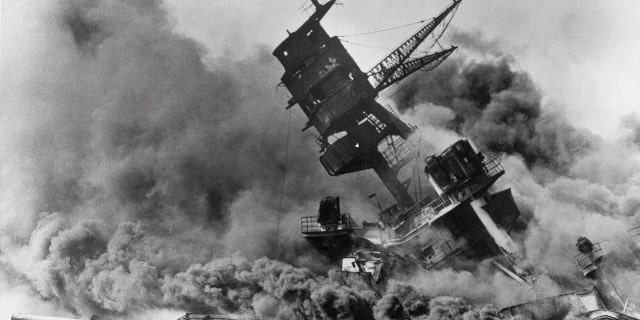
In this Dec. 7, 1941 file photo, smoke rises from the battleship USS Arizona as it sinks during the Japanese attack on Pearl Harbor, Hawaii.
(AP Photo, File)
That “righteous might” of the American people manifested itself in the most remarkable military, industrial, logistical and spiritual mobilization in human history — leading to the liberation of hundreds of millions of people around the world.
“For nearly two hours, Japanese firepower rained down upon American ships and servicemen.”
The Empire of Japan, and fellow Axis Power Nazi Germany, had by the end of 1941 conquered much of Asia, Europe and North Africa — often with frightening ease.
MEET THE AMERICAN WHO INSPIRED THE NATION IN TWO WORLD WARS: CHRISTIAN SOLDIER SGT. ALVIN YORK
The attack on Pearl Harbor was only the spearhead of a much wider and ambitious Japanese offensive across the Pacific Ocean that began on Dec. 7.
Roosevelt ticked off the devastating news in his emergency address on Dec. 8.
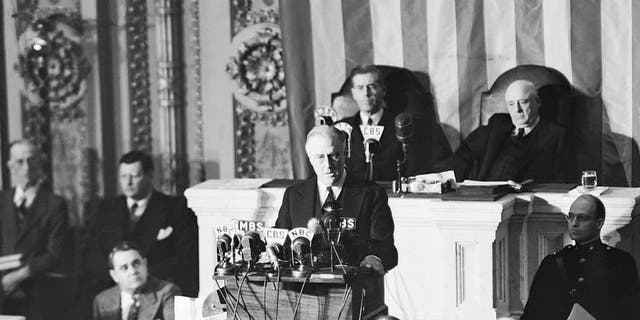
President Franklin D. Roosevelt is pictured during the dramatic moments before the joint session of Congress, Dec. 8, 1941, as he asked Congress to declare war against Japan for its “unprovoked and dastardly attack.” On the right is his son, James Roosevelt. In the background are Vice President Henry A. Wallace (left) and Speaker of the House Sam Rayburn. Both the Senate and the House complied with FDR’s request almost immediately.
(Photo by Bettmann Archive/Getty Images)
“Yesterday the Japanese government also launched an attack against Malaya. Last night Japanese forces attacked Hong Kong: Last night Japanese forces attacked Guam. Last night Japanese forces attacked the Philippine Islands. Last night the Japanese attacked Wake Island. And this morning the Japanese attacked Midway Island.”
“Within days,” the National World War II Museum notes, “the Japanese were masters of the Pacific.”
MAN ATTEMPTS FREEDIVING WORLD RECORD, BECOMES LIFELESS UNDERWATER AS OTHERS RUSH TO HIS AID
Japan had already occupied much of China for several years.
German chancellor Adolf Hitler, flush with two years of his own victories, rashly declared war on the United States on Dec. 11. His declaration gave the U.S. justification to enter the European war, too.
The attack on Pearl Harbor proved the greatest miscalculation in military history.
But both Japan and Germany appeared invincible. The United States appeared woefully ill-prepared to enter a global conflict across vast expanses of oceans.
The future of civilization appeared hopeless.
Yet within four years, thanks to America’s “righteous might,” both Imperial Japan and Nazi Germany lay in smoldering ruins, their ability to wage war destroyed, their conquered lands reclaimed and the hundreds of millions of people freed from domination.
The United States then led the effort to rebuild both nations into major world economies with stable democratic leaderships.
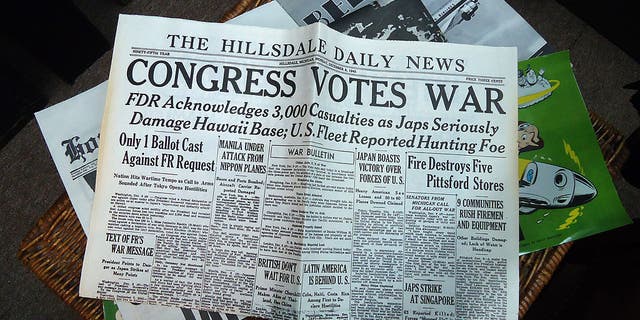
A Michigan newspaper dated Dec. 8, 1941, is shown in Hawaii on Thursday, Dec. 20, 2012. The paper headlines the Japanese attack on Pearl Harbor.
(Photographer: Jim Clash/Bloomberg via Getty Images)
The shape of the future world began to turn in the midst of the attack on Pearl Harbor. American sailors, soldiers and airmen overcame the shock of sudden attack and quickly began to fight back.
Fifteen sailors and one Marine earned the Medal of Honor for heroic actions that day alone.
THE AMAZING STORY OF A WWII VETERAN WHO JOINED IN 1940 AT AGE 14 BECAUSE HE WAS HUNGRY
Among them were Rear Admiral Isaac Kidd, who died commanding the defense from the bridge of the USS Arizona, the first U.S. flag officer killed in any war; Captain Mervyn Bennion, who remained in command of USS West Virginia, saving the ship despite mortal wounds; and Chief Boatswain Edwin Hill, whose remarkable heroics freed the USS Nevada while under attack.
“During the height of the strafing and bombing, Chief Boatswain Hill led his men of the line-handling details of the U.S.S. Nevada to the quays,” reads his Medal of Honor citation.
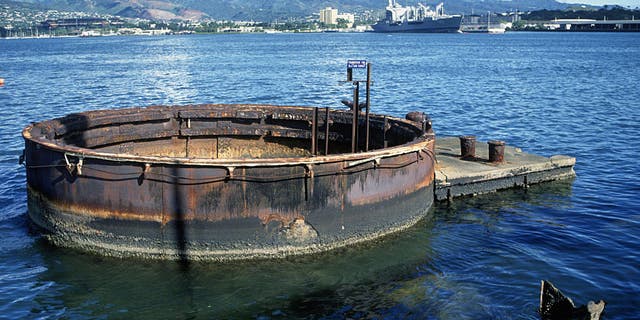
The U.S.S. Arizona Memorial circa 1987 in Honolulu, Hawaii.
(Photo by PL Gould/IMAGES/Getty Images)
The Nevada was now able to set sail. But Hill wasn’t done.
He leaped into the water and swam back to his ship to continue the fight.
CLICK HERE TO SIGN UP FOR OUR LIFESTYLE NEWSLETTER
“Later, while on the forecastle, attempting to let go the anchors, he was blown overboard and killed by the explosion of several bombs,” the MOH citations notes.
The Nevada was the only battleship to set sail that morning. She went on to distinguished service in the war.
The USS Nevada helped lead the D-Day invasion of Europe in 1944 and the final attacks on the Japanese home islands in the summer of 1945.
Japan had hoped to stun the American people into docility on Dec. 7, 1941.
The USS West Virginia also survived the Pearl Harbor attack, but at the loss of 106 sailors.
She triumphantly sailed into Tokyo Bay less than four years later, to witness the surrender of Japan and the end of World War II on Sept. 2, 1945.
CLICK HERE TO GET THE FOX NEWS APP
Japan had hoped to stun the American people into docility on Dec. 7, 1941, as its army and navy swiftly conquered territory across Asia and the Pacific Ocean.
The attack on Pearl Harbor instead forged the resolve of American people and proved the greatest miscalculation in military history.















































